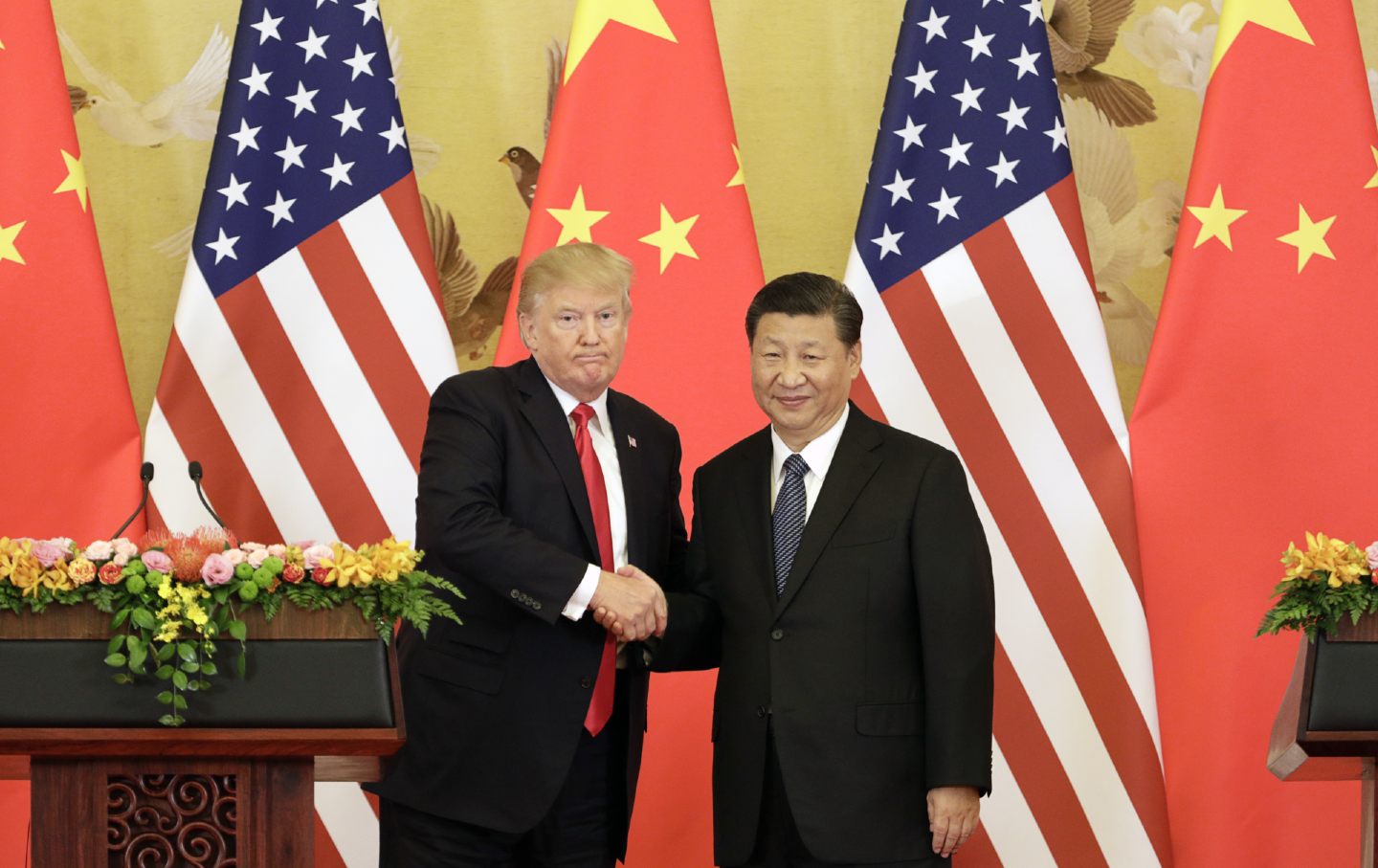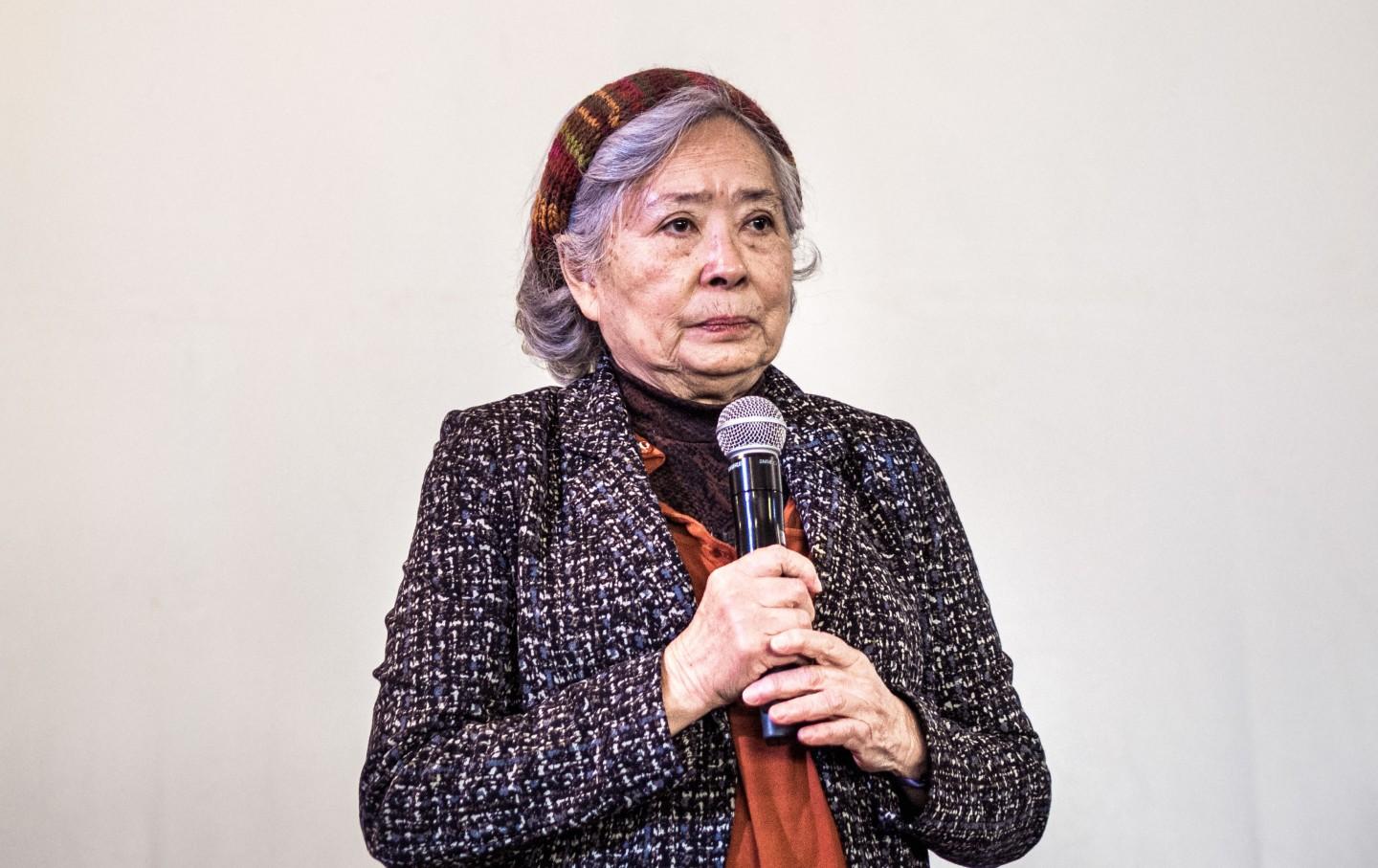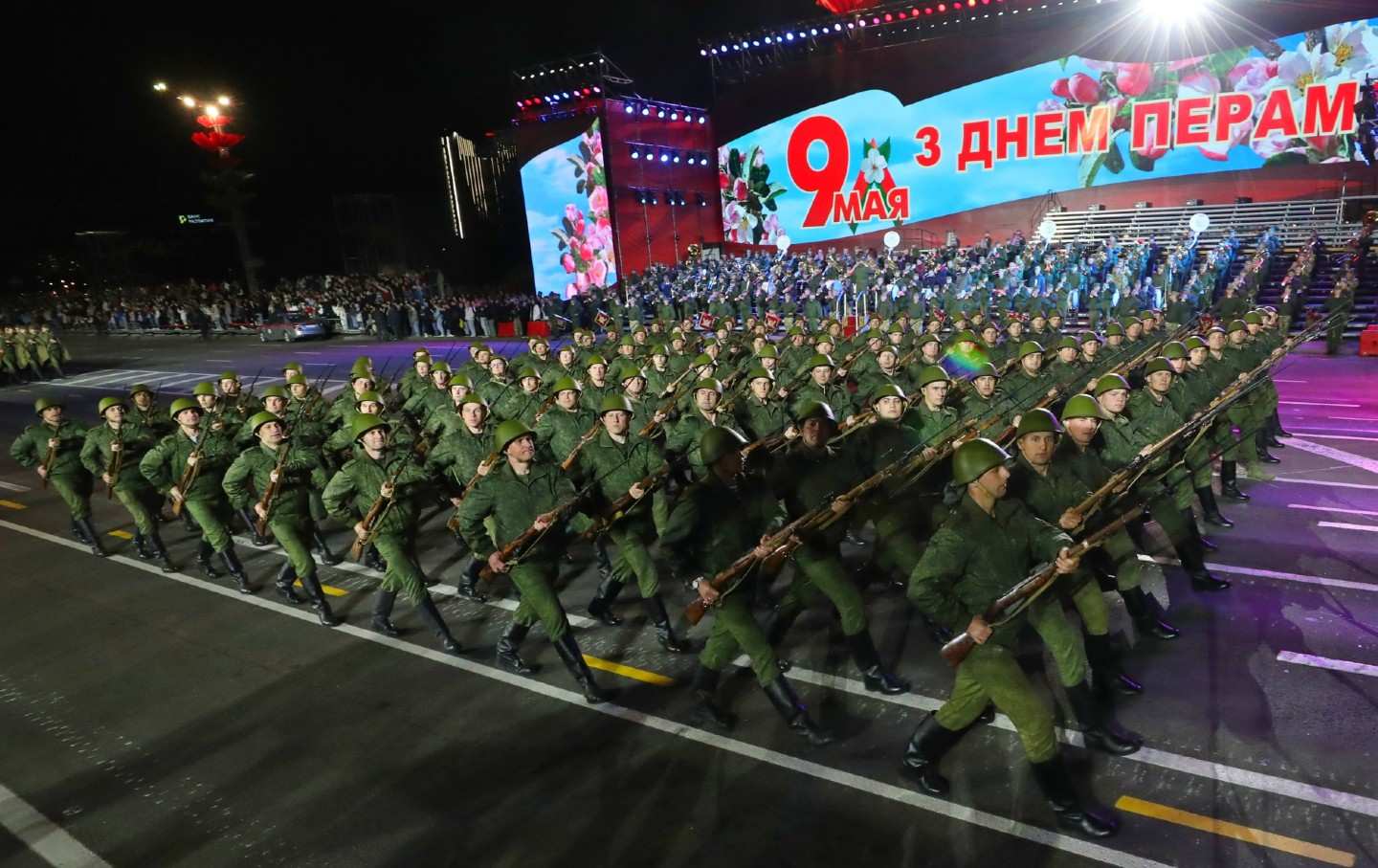A New Chinese Exclusion Act
Demonizing China allows Republicans to unite around an authoritarian agenda at home—and provides a convenient rationale for unfettered Pentagon profiteering.

This article is part of “Project 2025: The Plot Against America,” a Nation special issue devoted to unpacking the right’s vast and chilling program for a second Trump term.
In Project 2025’s Mandate for Leadership, fear and hatred of China have replaced the interests of big business and free-market dogma as the motive forces in Republican politics.
The Chinese exclusion agenda has lent new vitality to the Republican policy program. In the wake of Trump’s disorienting triumph over the GOP mainstream, vilification of China is also creating shared ground for the party’s discordant factions. And because animosity to China helps make sense of widespread hardship in the US (which the Biden campaign is simply denying), it helps the otherwise unpopular politics of conservatives gain majority backing.
In his framing essay, Heritage Foundation president Kevin Roberts rehearses familiar conservative themes of cultural decay and government interference, but the pivot on which Project 2025 turns marks a new direction for the right. The many challenges facing the American people, Roberts writes, can in fact be traced to a Chinese conspiracy against America and the US elite’s treason in joining it.
Roberts claims that the “woke Left”—which supposedly includes big business, public institutions, and popular culture—wants to foist open borders and free trade on the American people in order to hoard power, expand profits, flaunt its own virtue, and secure cheap “housekeepers, landscapers, and busboys.”
According to Roberts, the US elite has carried out this betrayal hand in glove with the “totalitarian Communist dictatorship in Beijing”: “For a generation, politicians of both parties promised that engagement with Beijing would grow our economy while injecting American values into China. The opposite has happened. American factories have closed. Jobs have been outsourced. Our manufacturing economy has been financialized.” Roberts singles out Wall Street and Big Tech in particular, describing the latter as “operatives in the lucrative employ of America’s most dangerous international enemy.”
But, Roberts continues, China’s reach into American society goes beyond the corruption of the elite and laying waste to the economy. Through TikTok, China corrupts teenage girls; through its Confucius Institutes, it corrupts American universities. Other chapters in Mandate expand on the indictment.
Christopher Miller, who served as acting secretary of defense under Trump, writes that China “aspires to dominate Asia and then, from that position, become globally preeminent. If Beijing could achieve this goal, it could dramatically undermine America’s core interests, including by restricting U.S. access to the world’s most important market.”
According to Kiron Skinner (the State Department’s director of policy planning under Mike Pompeo), “The same cartels that parasitically run Mexico are also working with the PRC to fuel the largest drug crisis in the history of North America.”
Peter Navarro (formerly Trump’s director of the White House Office of Trade and Manufacturing Policy) asserts that China created the pandemic: Covid-19 “almost certainly originated as a genetically engineered virus from the Wuhan Institute of Virology.”
Navarro also includes an eight-page list of Chinese “economic aggression,” including such nefarious practices as making use of publicly available knowledge, investing in technology, and offering to support US priorities in exchange for US support of Chinese priorities.
What all these claims have in common is their focus on problems facing the US, and the world, in which China plays some role: job loss, community disintegration, violation of data privacy, drug addiction, pandemic disease. Then they assert, on flimsy evidence, that China is not only the primary cause of these problems but has deliberately created them in order to victimize Americans. In other words, these are conspiracy theories.
Skinner admits as much: “The reality, however, is that the PRC’s actions often do sound like conspiracy theories—because they are conspiracies.” The conspiracy theorist insists that, in this case, the conspiracy really is real.
These allegations have just enough truth to be superficially plausible. China is involved in the core problems facing America and the world. But it is never the sole or even the primary author of them, and its own contribution to these problems is generally similar to US behavior rather than representing a contrast.
Deindustrialization, the destruction of organized labor, and the suppression of wages in the US, for example, began decades before China became an important exporter. What created these problems was instead a crisis of business profitability in the 1970s and Ronald Reagan’s policies of crushing unions and deregulating the economy. The dismantling of workers’ power in China in order to draw foreign investment there makes China’s path all too similar to America’s.
Yet Mandate claims that China’s unchanging cultural essence, radically different from that of the West, makes confrontation inevitable. According to Skinner, “Chinese power today is the product of history, ideology, and the institutions that have governed China during the course of five millennia…meaning that internal culture and civil society will never deliver a more normative nation.” (Skinner, who is Black, argues that the US is facing “a fight with a really different civilization” in China, because “it’s the first time that we will have a great-power competitor that is not Caucasian.”)
Fear of this alien influence justifies one of Mandate’s most noteworthy through lines: centralizing political power in order to carry out a wide-ranging purge of “un-American” elements from the body politic—starting with government personnel. Ironically, this closely mirrors the conduct of Xi Jinping himself, who launched an anti-corruption campaign that allowed him to concentrate power in his own hands.
To what ends is this American authoritarianism directed beyond consolidating Republican power? If China by its very presence in American society endangers the nation, the solution must be Chinese exclusion from the United States—accompanied by confrontation in those areas (like the Asia-Pacific) where unilateral action cannot achieve exclusion. Project 2025’s proposals range from the complete decoupling of the United States from the Chinese economy, to restarting the Department of Justice’s China Initiative (a racial-profiling program devoted to harassing researchers with connections to China), to the exclusion of China from global standards-setting bodies. As William Hartung shows below, Miller justifies his proposals to massively expand the US military by citing the need to make US threats against China credible.
Popular
“swipe left below to view more authors”Swipe →This zeal to punish China—and its resonance with GOP traditions of militarism and nativism—also eases the way toward repudiating the party’s previous commitments to free markets, free trade, and concentrated wealth. Billionaires looking to avoid populist wrath, like JPMorgan Chase’s Jamie Dimon, have learned that you can still crush workers, shirk taxes, and get rich—as long as you cover yourself in belligerent patriotism. Yet precisely because Sinophobia allows Republicans to connect with popular animosity against a rigged system run by unaccountable and condescending elites, it opens a path to reviving the popularity of conservative politics.
Far from attacking this Sinophobic worldview, the Biden administration has largely adopted it. Biden officials say that China—not transnational threats like climate change, global inequality, and the collapse of the global system into warring great-power blocs—is the primary threat America faces. Which only affirms the basic Republican narrative. As the more aggressive party, the GOP will always have a clear advantage when both parties encourage the idea of shadowy foreign threats. At the same time, the Biden campaign is having a hard time speaking to the widespread sense of national decline and injustice, leaving the field open to reactionary explanations.
Yet pandering to nationalism while preparing for war is not the only way forward. Popular hostility to China is widespread—but also very shallow. Americans remain open to more complex understandings that acknowledge the terrible abuses of the Chinese state while focusing on shared experiences of everyday injustice and suffering in the US and China, and to solutions that don’t pit the people of each country against the other.
Standing against the nativist populists, who claim that inclusion at home can be achieved only through the exclusion of foreigners, multiracial and internationalist populists offer a progressive critique of the status quo. This analysis has the potential to mobilize popular dissatisfaction into the fight for an alternative vision that would embrace everyone. Merely dismissing Sinophobia will only make it stronger—and we urgently need a powerful response.








